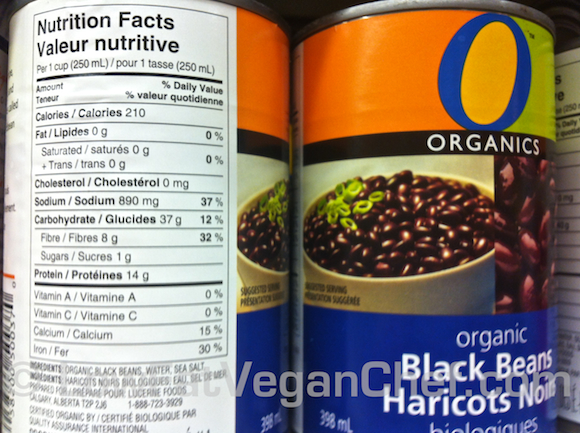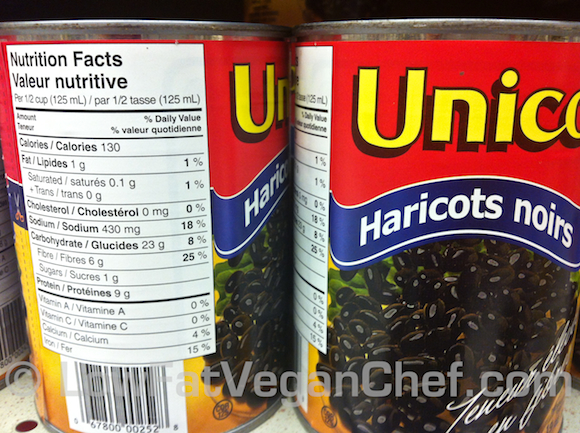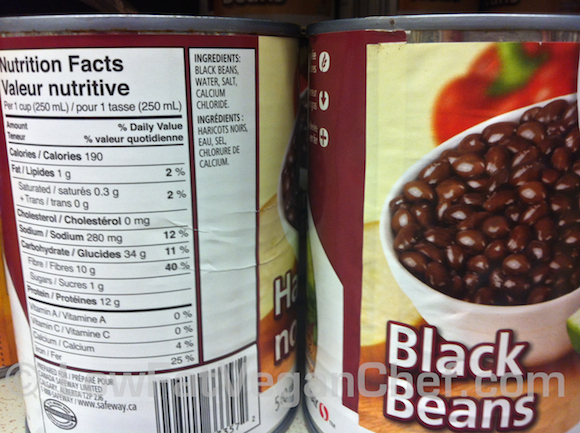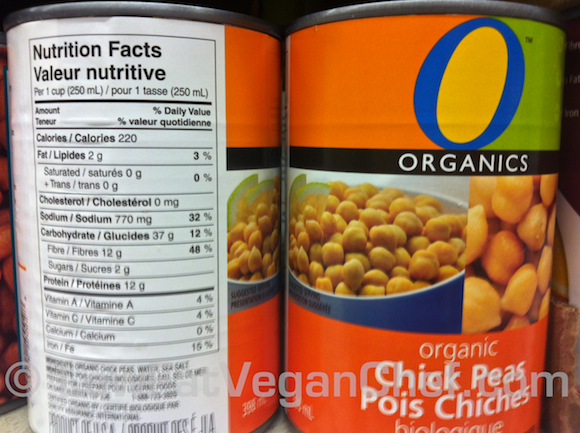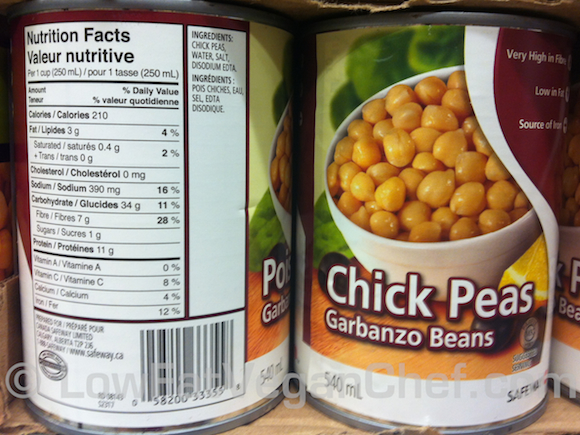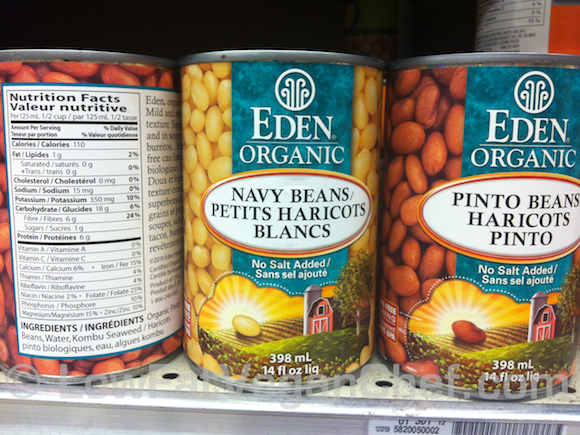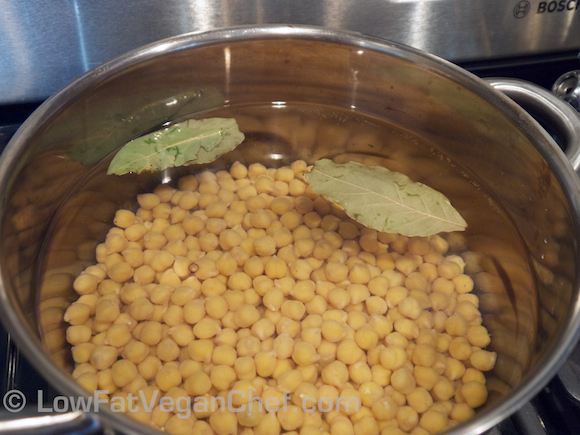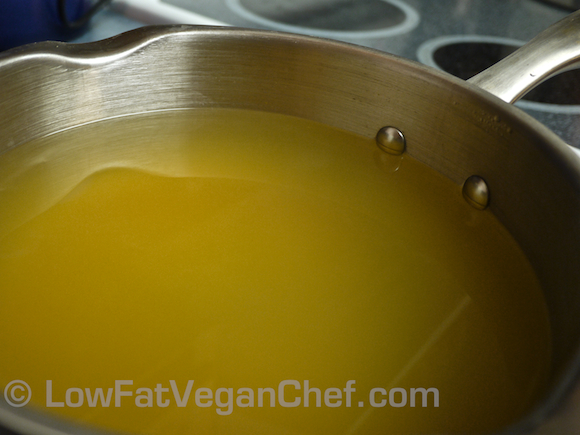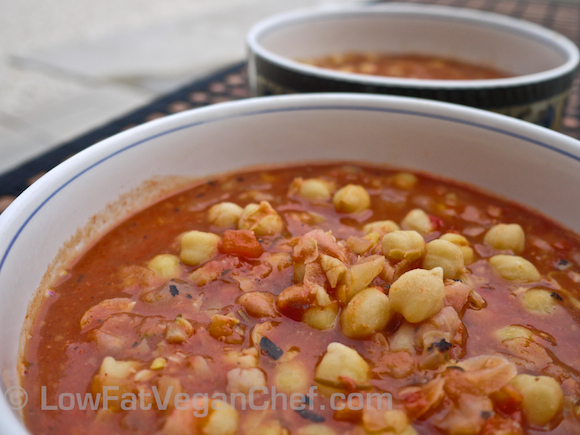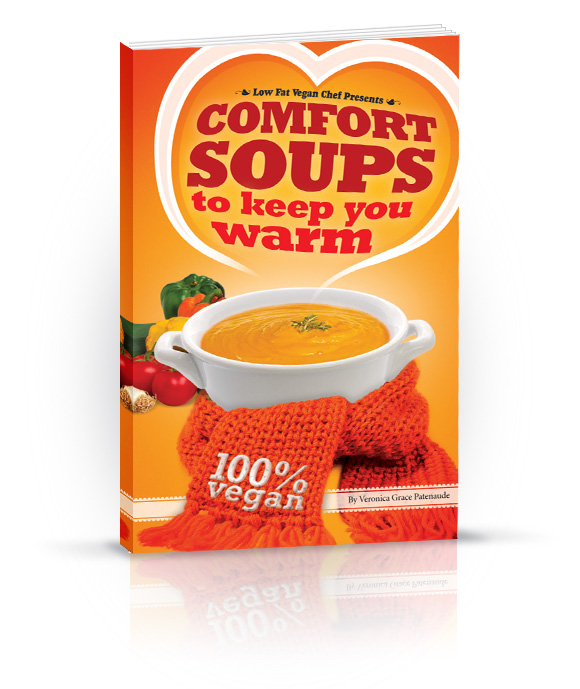Shopping for healthy foods can be somewhat challenging and confusing these days. Most people purchase products based on what the package looks like and health claims put on the front. They don’t always read the ingredient list or check out the nutritional information.
One thing I find particularly confusing and frustrating is the label “organic”. Especially when it comes to processed foods. Organic is only one criteria to determine whether a food is “healthy” and a good choice. Often foods labeled organic can have lots of oil and salt which can make them unhealthy regardless of being organic.
Let’s take a look at some of the organic and conventional canned beans that can be purchased at a regular grocery store. (Please bear in mind I am in Canada and there’s only about 4 choices of brands for each product and there will be more in the USA)
Black Beans
1 cup of organic black beans is 210 calories with 890 mg of sodium. This is shocking! You want to look for foods with around a 1:1 ratio of calories per serving and mg of sodium. This is far too much sodium for a packaged food for me to ever put in my shopping cart. It doesn’t even matter that it’s organic so I just leave it on the shelf.
So what about a non-organic brand of black beans such as this popular brand? Well this label is deceiving. They have changed the serving size to only 1/2 cup. For 1 cup of these black beans it contains 260 calories and 860 mg of sodium. This brand has more calories and only slightly less sodium in it. This wouldn’t make it into my shopping cart either.
There’s lots of different brands so let’s check out another one. This one is 190 calories per 1 cup and only 280 mg of sodium. This leads me to believe there is less oil and sodium used in the recipe, and while the sodium isn’t quite at the 1:1 ratio it seems to be the best option for non-organic black beans at a fair price. For conventional, yes this could go into my shopping cart if there wasn’t any sodium free variety available.
Chickpeas/Garbanzo Beans
Chickpeas are another product frequently bought by vegetarians and health seekers so let’s take a look at some of these labels.
Organic chickpeas, looks good on the front, but check out the nutritional information on the back. 1 cup has 220 calories and 770 mg of sodium. This is far too high and it would not make it into my shopping cart.
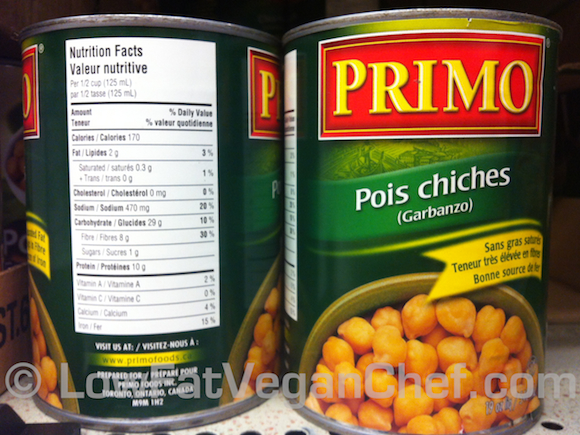
This label is again playing the little trick of changing the serving size. For a 1 cup portion of chickpeas it has 340 calories and 940 mg of sodium. This is shocking! This product would never ever make it into my shopping cart. That is more salt than in a frozen dinner or a pizza.
Here’s a more acceptable nutritional label. 210 calories and 390 mg of sodium. It’s not low sodium, but it seems to be one of the “better” choices for the price at the grocery store. If there were no low sodium/sodium free varieties at the store, I would choose this one.
When comparing organic to traditional products there are definitely some clear winners and losers. Overall there is one brand of organic beans that you can always count on to be healthy and good for you. I don’t need to compare any more types of beans, I think you get the message that even products that should be essentially the same are not and it’s important to always read the labels.
Eden Organics uses no added salt and uses seaweed instead to add some additional flavor to the beans. The great news is that they are also oil free and contain no other preservatives. They also come in a BPA free can, so all around they are the best choice for canned beans. You can find them at regular and health food stores. The only downside is that they are often more expensive than their competitors, but their product is better.
The good thing is, once you find out what brand is the healthiest you don’t have to spend time reading labels anymore for that product, just repurchase it every time. Even if the other brands that are high sodium and are on sale, I still don’t buy them. Sometimes they are in BPA lined cans and have salt and oil in them and there’s no point in buying unhealthy plant foods just because it’s on sale. The other ones are only a few cents more each.
Alternatively you can cook your own beans and control the amount of sodium and reduce the cost of using beans in your cuisine at home.
I detail this in my Comfort Soups To Keep You Warm recipe ebook. You’ll learn how to cook dried beans from scratch, make your own vegetable broth (that is more flavorful than store bought and low sodium)
All this and more is can be found in Comfort Soups To Keep You Warm
Are you surprised by any of these labels? Do you read the nutritional labels of everything you purchase at the store? Any other products you’d like me to investigate at the grocery store?

